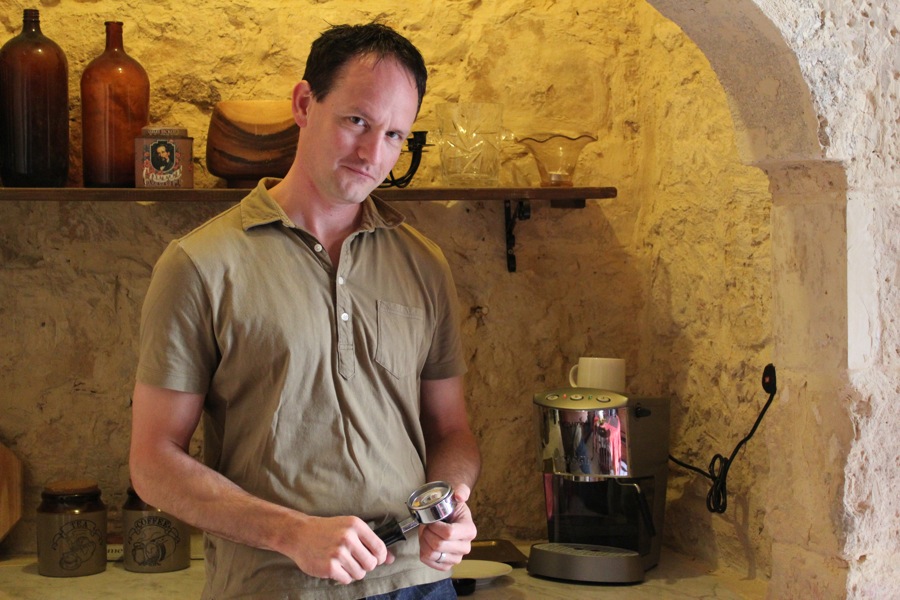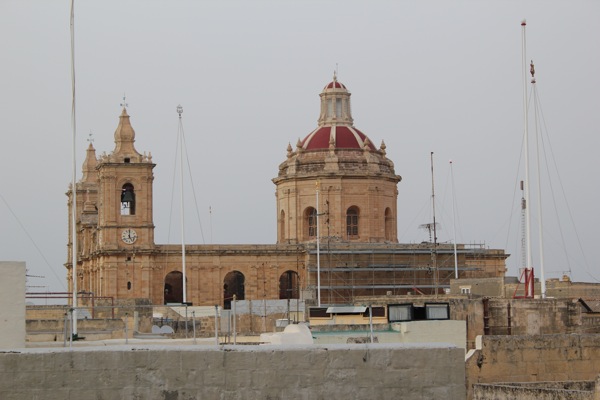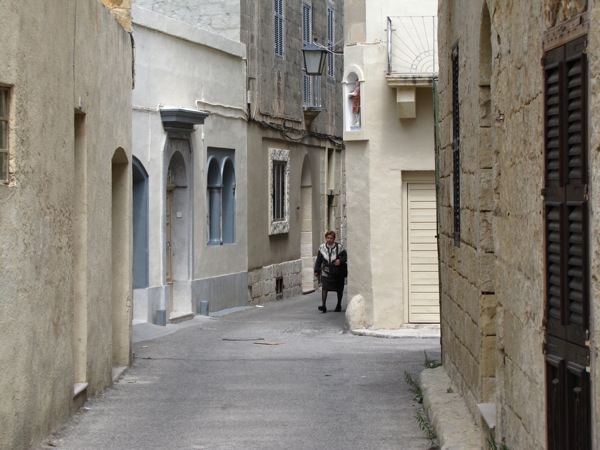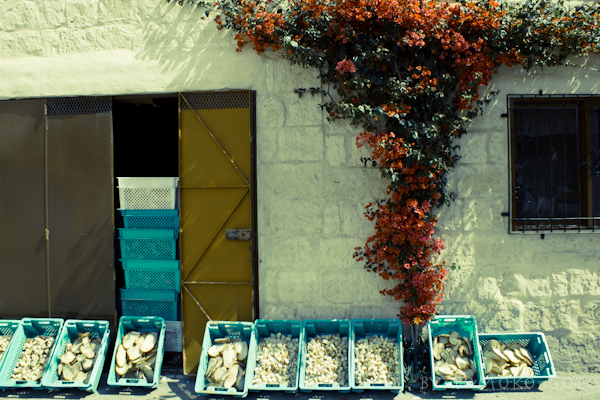It was just 6am when I slipped out the door for the first time, jet-lagged, pale and squinting in the harsh island sun.
A cacophony of tiny birds chattered in the morning cafe of a tree. Pigeons circled the village in a cloud that sounded like bedsheets flapping on a clothesline. One of their number insisted on occupying the toilet off our courtyard, and for a week I would wake at dawn to chase it away with a broom, until it finally understood the house was lived in again. It wouldn’t be long before the cicadas started to wail.
The narrow street where we lived had been heavy with the chill of nighttime stone, but in the expanse of Zejtun’s modest pjazza, the sun warmed one side of my face and left the other side cool, as though half of me were still asleep; Janus-faced I greeted the day. The village was already coming to life. Old ladies shuffled around the edge of the stone-paved square, burdened with shopping bags of vegetables and bread. Old men hunched in gossiping groups on the steps of the church. From somewhere in a walled off courtyard, I heard a rooster crow.
The edge of the pjazza smelled like drains. A small child with a backpack — sweating and out of breath — dodged across the street between cars, narrowly missing a housewife as he corrected his course and shot down an alley in a desperate race to beat the school bell.
A horn blared from a distant street: three long, insistent blasts that I would later recognize as the bread van, threading the alleys to deliver a morning loaf.
The cafe on the corner looked promising, so I went in. It turned out to be the only cafe on the pjazza; the other establishments were Band Clubs, and bars the size of walk in closets.
“Good morning,” I said in a voice cracked with sleep. “Could I have a cappuccino please?”
The lady behind the counter grimaced as though gripped by sudden abdominal pain. She grunted something that sounded like, “Nescafe.”
I thought perhaps she’d misunderstood me. Maltese people were used to British English, so I tried again. “No, a cappuccino,” I said, enunciating it like an Italian while pointing at the machine behind her, and at the bricks of Lavazza stacked nearby.
“The machine isn’t warm. It takes a long time to heat up.”
“It’s okay, I’ll wait.”
She grimaced again and made a quick lateral shift. “Le, le, le… The man who makes coffee isn’t here.”
“But can’t you make me a coffee?” She wasn’t exactly besieged with orders. I was the only customer.
She shook her head and waved a towel in the air like a menaced cuttlefish darkening the waters. “Nescafe,” she said again, with grim determination.
And so I sat at a corner table browsing through the Times of Malta, drinking instant coffee from a glass. A growing procession of traffic rattled past, trailing blue exhaust that settled around me like a London fog. And then a customer walked in, glanced my way and farted in surprise.
My island life did not get off to a very good start.





